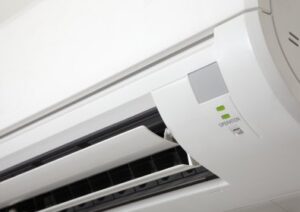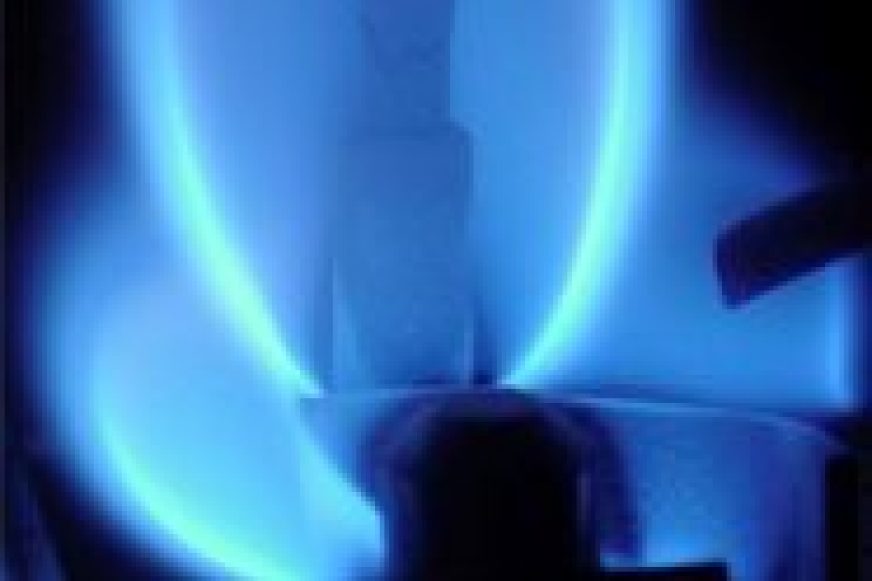Is gas heating really cheaper than electric? It’s autumn now and the weather is finally starting to cool. In some homes in Australia ducted heating systems are being switched on for the first time this year, sending hot air through chilly rooms. So with heating whats cheaper?
What many people who switch on gas heating won’t realise is that their bills will be higher – possibly significantly higher – than if they were warming their homes with an electric reverse-cycle air-conditioner. The old perception that gas is cheaper than electricity is, sadly, still prevalent, despite the fact that gas prices are rising and the latest electric appliances are many times more efficient in their use of energy than their gas counterparts.
Clever electric technology like heat pumps for hot water and reverse-cycle air-conditioners for space heating can use one megajoule of energy to transfer between 4-5 MJ of heat. With gas, by contrast, 1 MJ becomes at best 0.9 MJ of heat in a burner. If a home uses ducted heating, about one-third of that heat will be lost under the floor and one-third will go up the flue to mitigate against carbon monoxide.
Part of the problem when it comes to public perception is the misleading messaging coming from the gas industry. Battered by low commodity prices and the unpopularity of coal seam gas, the industry is trying to shore up its product by continually asserting that gas is “cheaper” than electricity.
Last month the Australian Pipelines and Gas Association put out a statement saying Australian households use about the same amount of energy from electricity as gas but pay much less for the latter, so “if we are looking to reduce our household energy bills, we should use gas for as much of our energy needs as possible,” the statement concluded. What is patently misleading about this claim is that, while gas is cheaper per unit of energy than electricity, it is much less efficient and so – both from an economic and environmental point of view – it makes more sense to be using efficient electric appliances for a home’s space heating and hot water.
The gas industry has been slow to acknowledge this fact, at least publicly. The Alternative Technology Association has written to the ACCC alerting it to misleading claims being made by gas companies about the cost and efficiency of gas. One gas company website, for instance, carried the following assertions: “Far more efficient than electric heating systems, natural gas solutions can save you money and provide a comfortable temperature more quickly,” and “[Gas ducted heating] is a far more efficient and less obtrusive way to heat multiple rooms compared to operating several portable or wall-fixed heaters.”
 In 2014 the ATA conducted exhaustive research on the comparative economic and environmental benefits to households of using gas appliances versus electric ones. We found many households in Australia would reduce their bills by switching from gas to efficient electric appliances. Switching would also be environmentally beneficial, reducing carbon emissions. Our research analysed the economics of new, high-efficiency gas appliances compared with equivalent new efficient electric appliances for space heating, water heating and cooking. By “efficient electric appliances” we mean heat pumps for water heating, reverse-cycle air-conditioners for space heating, and induction cook tops and efficient electric ovens. The analysis was conducted across different states and climate zones, household types and gas pricing zones to understand the potential costs and benefits.
In 2014 the ATA conducted exhaustive research on the comparative economic and environmental benefits to households of using gas appliances versus electric ones. We found many households in Australia would reduce their bills by switching from gas to efficient electric appliances. Switching would also be environmentally beneficial, reducing carbon emissions. Our research analysed the economics of new, high-efficiency gas appliances compared with equivalent new efficient electric appliances for space heating, water heating and cooking. By “efficient electric appliances” we mean heat pumps for water heating, reverse-cycle air-conditioners for space heating, and induction cook tops and efficient electric ovens. The analysis was conducted across different states and climate zones, household types and gas pricing zones to understand the potential costs and benefits.
We found that it is no longer economic for any new home, or existing all-electric home, anywhere in Australia to connect to mains or bottled gas compared with installing and operating efficient electric appliance alternatives. And this finding held true even without the installation of solar panels at the residence (which now provide electricity cheaper than from the grid).
Another major finding was that for many existing dual-fuel homes in warmer climates, progressively switching all appliances from gas to efficient electric – when they are due for replacement, and in some cases beforehand – is more cost-effective than replacing the same appliances with efficient gas ones.

Gas just isn’t as competitive against electricity as it used to be. So a word of caution this autumn and winter: if you rely on gas for heating but you also have a reverse-cycle air-conditioner, think twice before flicking the switch on the gas appliance. Using a reverse-cycle air-conditioner to heat your home will almost certainly lower your bills.
This article was first released by Kate Leslie on 5th May 2016. Kate is an energy and water analyst at the Alternative Technology Association, a national not-for-profit organisation that promotes sustainable living.








